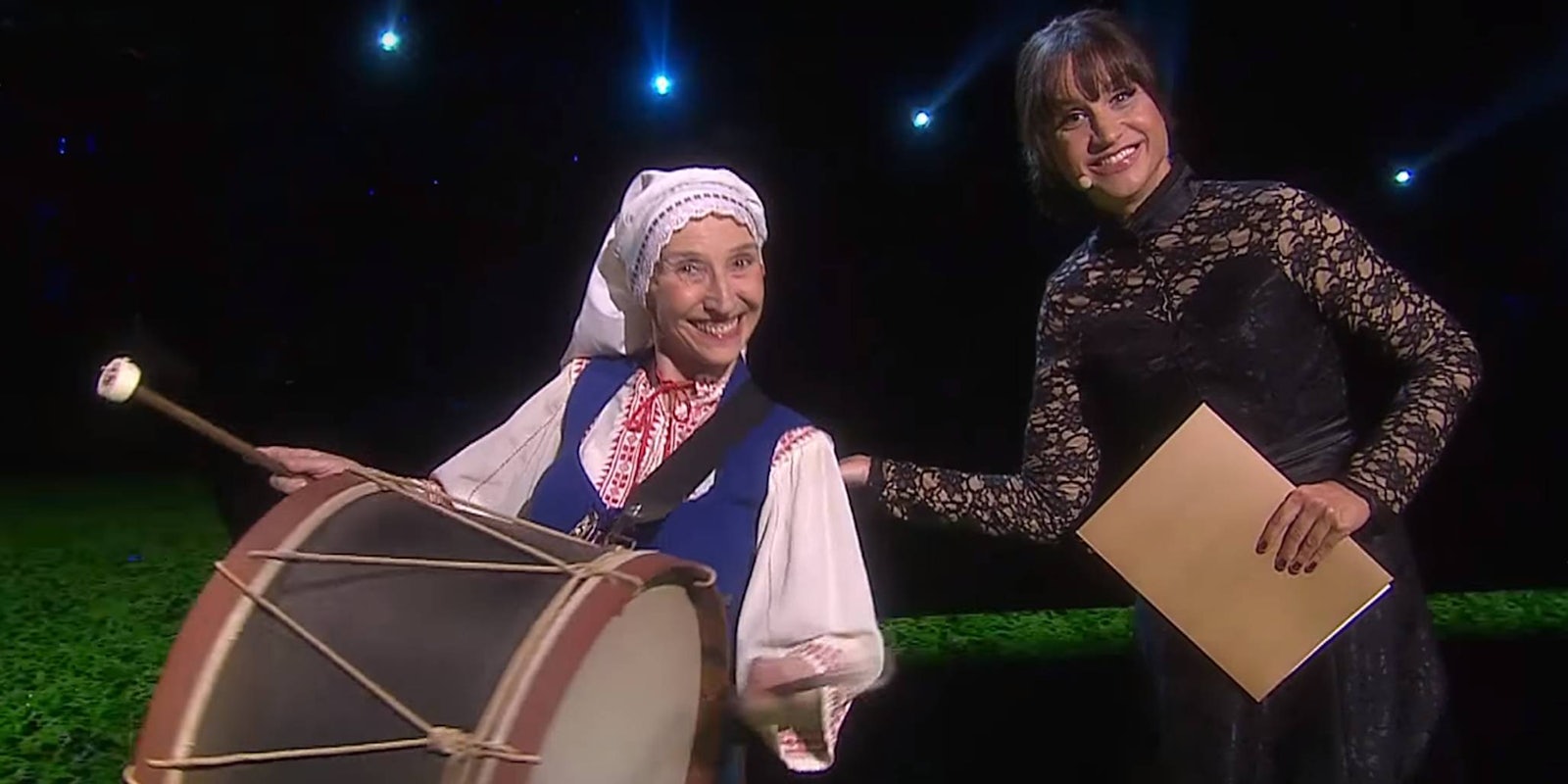Saturday night’s Eurovision Song Contest proved once again that Eurovision Twitter is one of the best Twitters of the year. It’s like the Hunger Games for Celine Dion impersonators and reality TV runners-up, featuring pyrotechnics, onstage costume changes, and fierce political infighting.
It’s also more popular than the Super Bowl.
The final round of the 2016 contest was disappointingly free from truly bizarre performers, after entries like the nude Belarussian wolf dancer were expelled earlier in the week. Luckily, the new voting system and some nailbiting political tension added plenty of drama to the night—along with an incongruous cameo from Justin Timberlake.
https://twitter.com/daredviIs/status/731600081527447553
Eurovision can often seem incomprehensible to outsiders, thanks to its combination of blatant political bias, laughable C-list performers, and a complex voting system. This year’s final, which featured an intense showdown between Russia, Ukraine, and guest entrants Australia, encompassed all of this and more.
https://twitter.com/yourprincessjpg/status/731765463970136064
https://twitter.com/BrianSpanner1/status/731780762811412484
https://twitter.com/ElizSimins/status/731615372114165760
Ukraine won with a solo vocalist named Jamala, singing a bilingual pop song called “1944,” about Stalin’s deportation of Crimean Tatars. This win was controversial from a political standpoint, with several Eastern Bloc countries shutting Russia out in favor of giving high scores to Ukraine.
“1944” was emotionally charged, but arguably not as catchy or entertaining as some of the other entrants. In previous years, Russia might have won thanks to the popularity of the flashy special effects in its entry, “You Are The Only One.” However, the new scoring system, which splits each country’s votes between the public and a private jury, saw Ukraine pull ahead of Australia (a politically neutral choice) and Russia at the last moment.
BREAKING: New #Eurovision voting system leads to war in Europe.
— Matt Navarra (I quit X. Follow me on Threads) (@MattNavarra) May 14, 2016
The new scoring system means we're all yelling at an infographic while Swedes in formalwear stumble over a faulty teleprompter. #Eurovision
— Gavia Baker-Whitelaw (@Hello_Tailor) May 14, 2016
Australia doing well as "least disliked" European country. #Eurovision
— Gary Gillatt (@Gary_Gillatt) May 14, 2016
Other highlights from the night included Germany’s unpopular entry from quirky anime fangirl Jamie Lee, Croatia’s transforming dress, and Poland’s emotive Johnny Depp lookalike.
Justin Timberlake’s guest appearance similarly inspired mixed reactions. Fans were excited to see him perform, but many Eurovision aficionados felt that he was too “normal” and too famous to belong anywhere near the contest. If people wanted to see a talented celebrity competently perform a famous song, they wouldn’t be watching Eurovision.
The one upside was the suitably weird reason Timberlake was there in the first place: he’s in Europe to promote the animated movie Trolls.
Justin Timberlake's performance embodies why Americans don't get #Eurovision. It's not SUPPOSED to be good.
— Laurie Penny (@PennyRed) May 14, 2016
At the end of the night, the true spirit of Eurovision was recaptured: Embodied both by the characteristically silly drama of the contest and by the hosts’ parody song “Love Love Peace Peace.”
While viewers waited for the votes to be counted, the Swedish hosts (including last year’s winner Måns Zelmerlöw) cheerfully made fun of every Eurovision cliche you could imagine, from obscure local folk instruments to a sexy milkmaid. They understood perfectly what we were here to watch.
